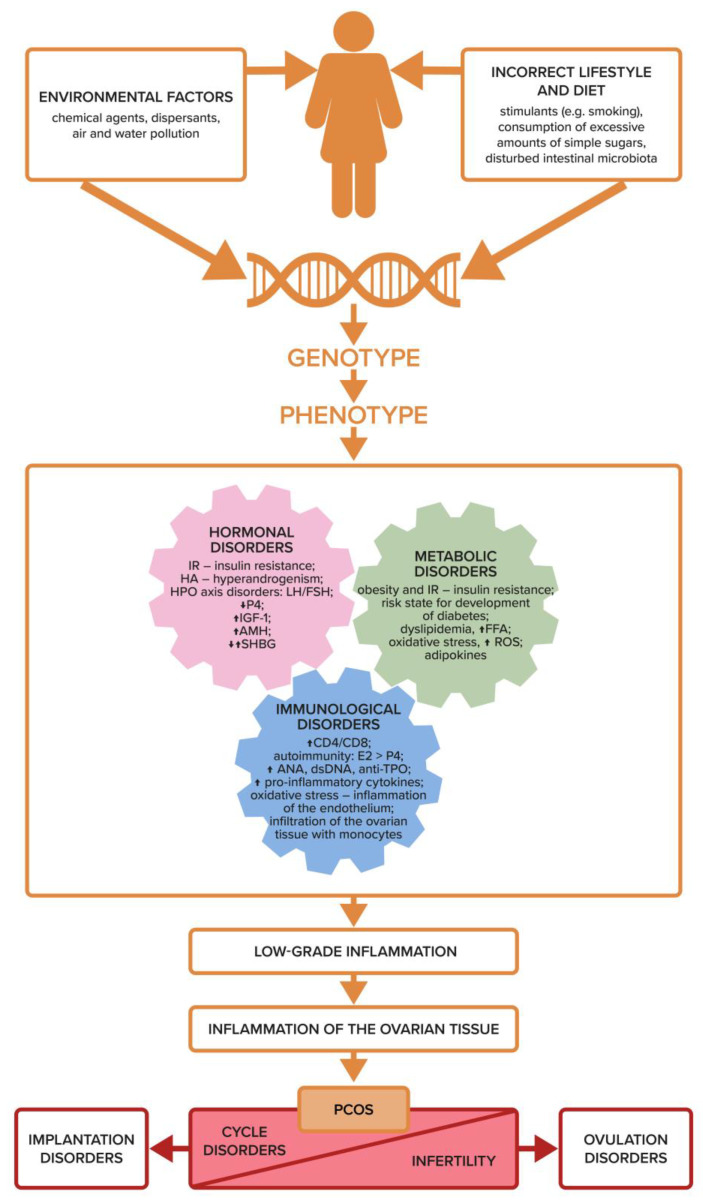Figure 3.
Triggers for infertility in PCOS. Depending on lifestyle, diet, and environmental factors, some genetic disorders appear earlier and others later. Several pathophysiological models are considered in PCOS, assuming it to be the primary disorder giving rise to this endocrinopathy and infertility. On the one hand, they include metabolic disorders such as IR, which can lead to immune disorders and oxidative stress. Insulin resistance (IR) is an important link in the pathogenesis of PCOS and is induced by inflammation/oxidative stress and hormonal dysfunction not only in adipose tissue (e.g., ovarian or adrenal androgens). It should be emphasized that even among thin women with PCOS, excessive consumption of glucose causes oxidative stress. Dysregulation of glucose metabolism and lipid metabolism causes low-grade inflammation in the endothelium, which also affects the ovarian tissue. On the other hand, the presence of chronic inflammation may contribute to the development of IR, which in turn is intensified by the release of androgens and pro-inflammatory cytokines from adipose tissue, not necessarily in obese women. Disorders caused by insulin resistance are sustained and further aggravated by the consequences of hormonal and metabolic dysfunctions, leading to immune dysregulation. IR also contributes to the dysregulation of the HPO axis, excessive secretion of androgens, and the lack/reduced production of adequate amounts of progesterone resulting from ovulation disorders. Progesterone deficiency promotes autoimmune processes that enhance IR and directly affect the ovulation process and oocyte quality and implantation. All this generates a cog-wheel effect, leading to systemic disorders in PCOS. The end result of this self-perpetuating mechanism is the abnormal growth of the ovarian follicles and impaired oocyte maturation, accompanied by endometrial receptivity dysfunction, which leads to irregularities of the menstrual cycle and infertility at various levels.

